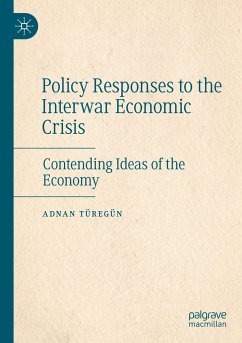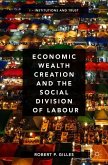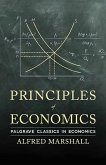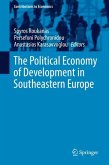This book is about national economic policy responses to the Great Depression of the interwar period. Taking off from a generally liberal starting point in the 1920s, states diverged greatly in their responses. Some were daring while others remained conservative. The two groups further differed among themselves in both degree and kind. The book gives a certain shape to this messy reality by identifying broad policy patterns (paradigms), and offers an explanation of it which emphasizes the ideational disposition of policy actors while recognizing the context that limits what they can do. More specifically, it argues that the ideas held by rulers and the strategies they consequently developed regarding three major groups of interest - business, labour, and, most critically, agrarians - largely determined economic policy variation across nations.
Bitte wählen Sie Ihr Anliegen aus.
Rechnungen
Retourenschein anfordern
Bestellstatus
Storno








